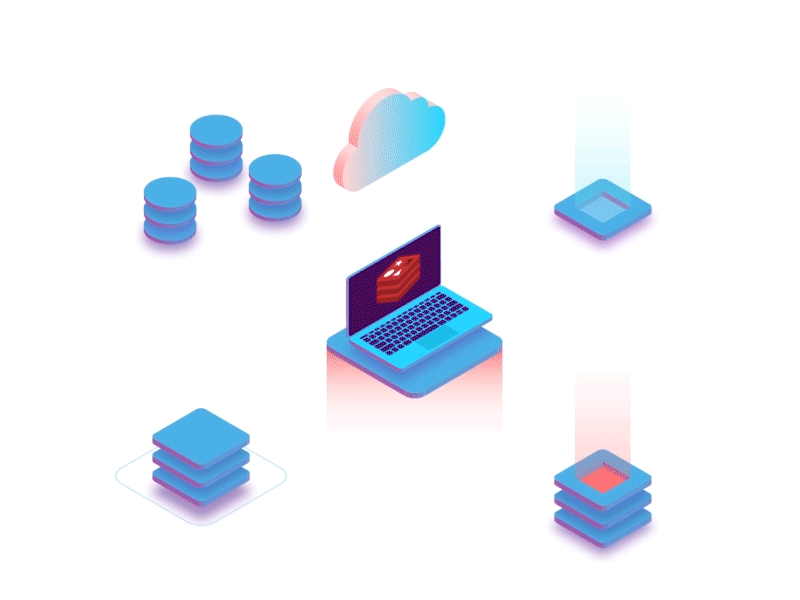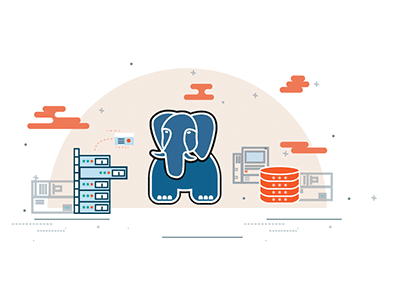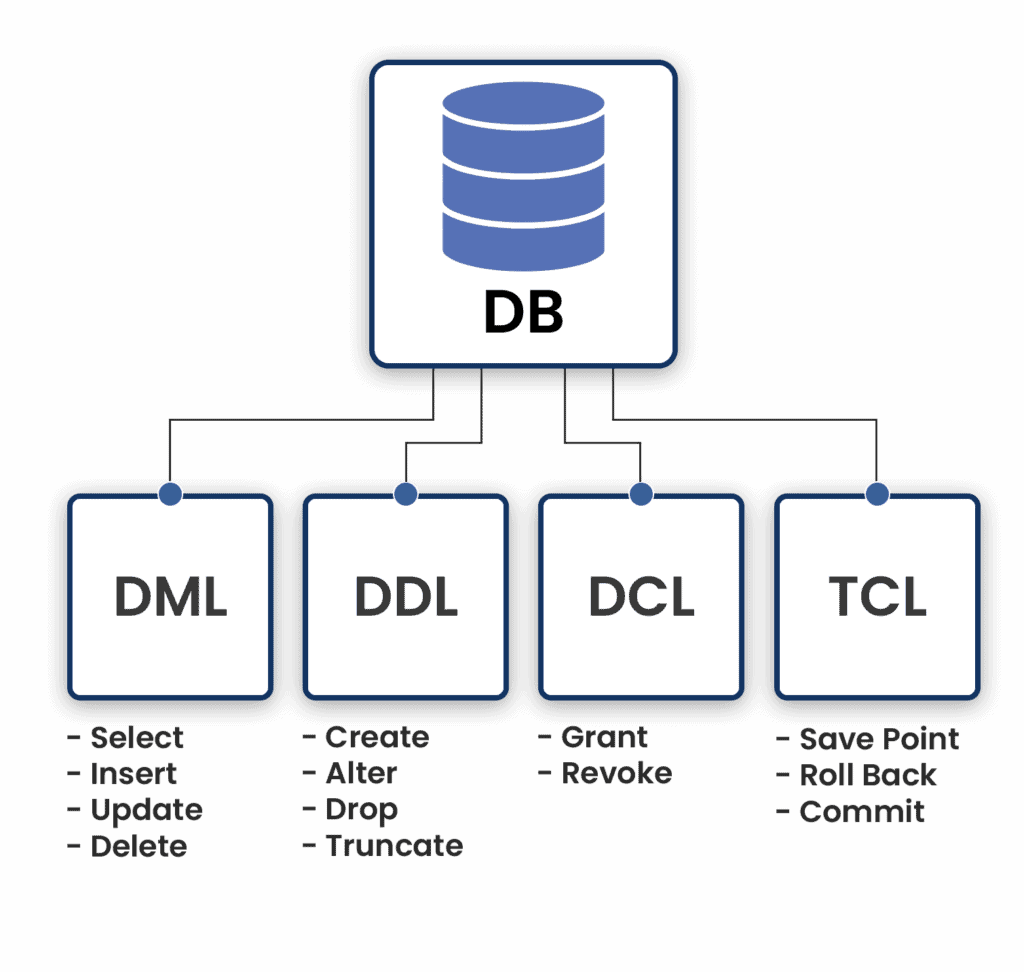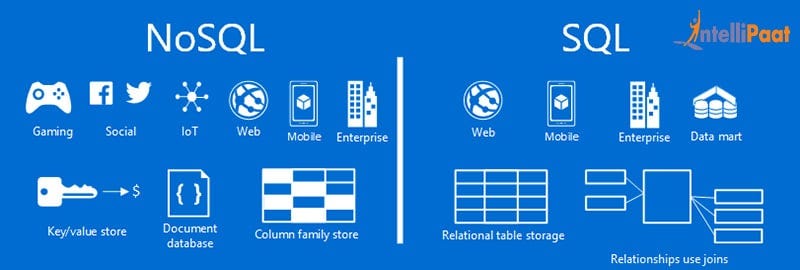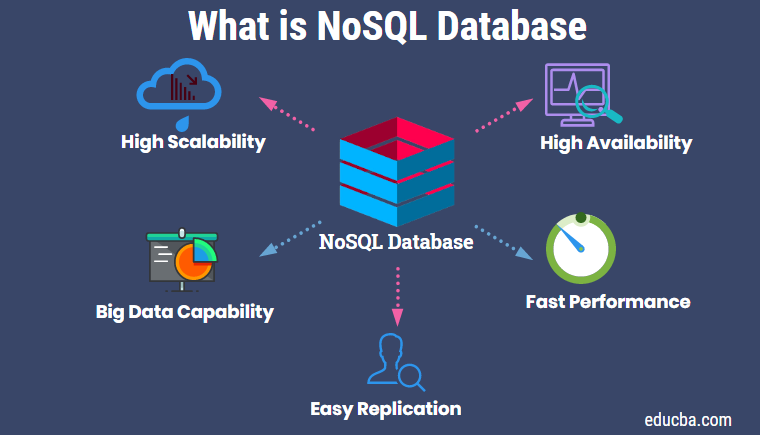Databases are all around us, with almost every company and business needing to store information digitally. A database is a collection of organised data that can be easily stored, sorted, retrieved and searched.
There are a variety of database types, and which type you use will be dependent on the type of data you wish to store. Let’s look at a few popular database types: SQL, No-SQL database.
SQL is a standard language for accessing and manipulating databases, and it stands for Structured Query Language.
The language can be broken down into four types of SQL commands – DDL, DML, DQL and DCL. Let’s look at what each of these sections are:
1. Data Definition Language (DDL) SQL is used as a Data Definition Language (DDL). This is used to create and modify database objects like tables, users, and indices.
DDL commands as
- SQL can create new databases.
- SQL can create new tables in a database.
2. Data Control Language (DCL) Data Control Language (DCL) is a command of SQL. DCL commands are used to grant and take back authority from any user.
DCL commands as
- SQL can set permissions on tables, procedures, and views.
3. Data Manipulation Language (DML) SQL is also used as a Data Manipulation Language (DML). This is used to delete, add, and modify data within databases.
DML commands as
- SQL can retrieve data from a database.
- SQL can insert records in a database
- SQL can update records in a database
- SQL can delete records from a database
4. Data Query Language (DQL) Data Query Language (DQL) is a command of SQL. This is used to perform queries on the data and find information, and is composed of COMMAND statements only.
DQL commands as
- SQL can execute queries against a database.
SQL has many advantages which makes it popular and highly demanded. It is a reliable and efficient language used for communicating with the database. Some advantages of SQL are as follows:
1- Faster Query Processing SQL processes a large amount of data in a very short amount of time. The core operations such as deletion, insertion, and any kind of data manipulation happen at lightning speeds because of their efficiency.
2- No Coding Skills & Interactive Language Easy to learn and understand, answers to complex queries can be received in seconds.For data retrieval, large number of lines of code is not required. All basic keywords such as SELECT, INSERT INTO, UPDATE, etc are used and also the syntactical rules are not complex in SQL, which makes it a user-friendly language.
3- Standardized Language SQL is open-source and supported by its community of users, and due to documentation and long establishment over years, it provides a uniform platform worldwide to all its users.
4- Portable It can be used in programs in PCs, server, laptops independent of any platform (Operating System, etc). You can even embed it within applications according to your personal needs and preferences.
5- SQL has great security features Permissions are easy to manage with SQL. It’s very simple to provide and verify your permissions, ensuring the security of your data.
Although SQL has many advantages, still there are a few disadvantages as follows:
1- Complex Interface SQL has a difficult interface that makes few users uncomfortable while dealing with the database.
2- Cost Some versions are costly and hence, programmers cannot access it.
3- Partial Control Due to hidden business rules, complete control is not given to the database.
SQL is a powerful, yet simple, query-based language that helps you handle databases with ease. It comes with great community support, and is open-source, making it an inexpensive choice no matter what your budget is.
SQL is used extensively across many business industries, including technology, finance, retail, music, and even the medical sector. It’s incredibly accessible, scalable, and user-friendly.
store in an information JSON document. The following defines the four most-popular types of NoSQL database:
-
Document Databases.
-
Key-Value Stores.
-
Wide-Column Databases.
-
Graph Databases.
NoSQL is more scalable and provide superior performance
1- Flexible Data Module.
2- Evolving Scalable.
3- Elastic Scalability.
4- High Performances.
5- Open Source.
1- Lack of Standardization.
2- Backup of DataBase.
3- Open Source.
So what are NoSQL databases and why do they matter now? Flexible, high-performance NoSQL is increasingly the preferred database technology to power today’s web, mobile, and IoT applications
With NoSQL, enterprises are better able to both develop with agility and operate at any scale – and deliver the performance and availability required to meet the demands of Digital Economy businesses.
